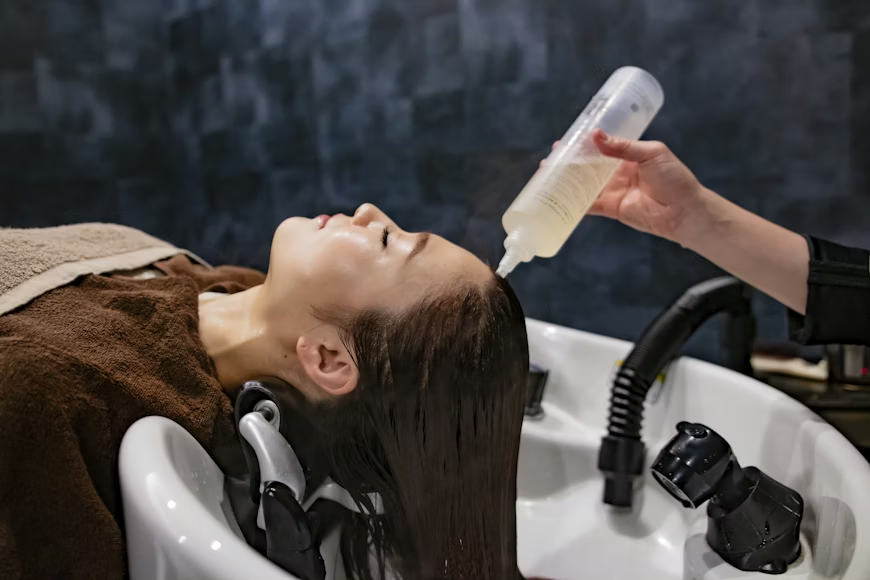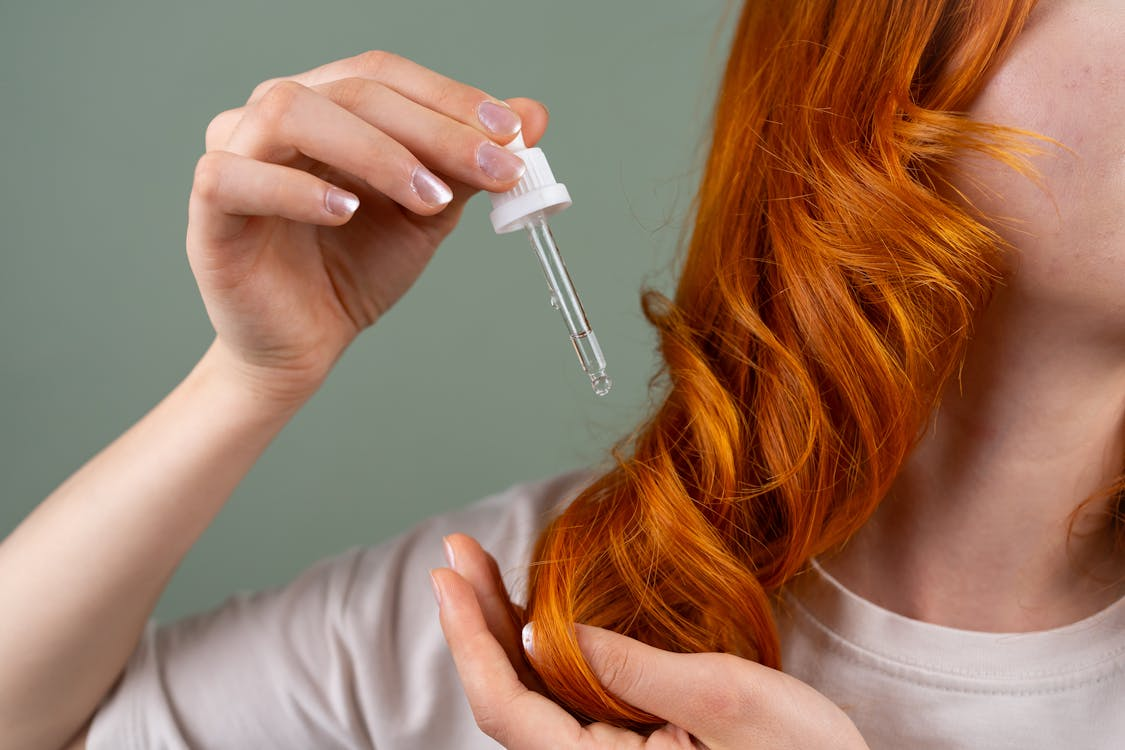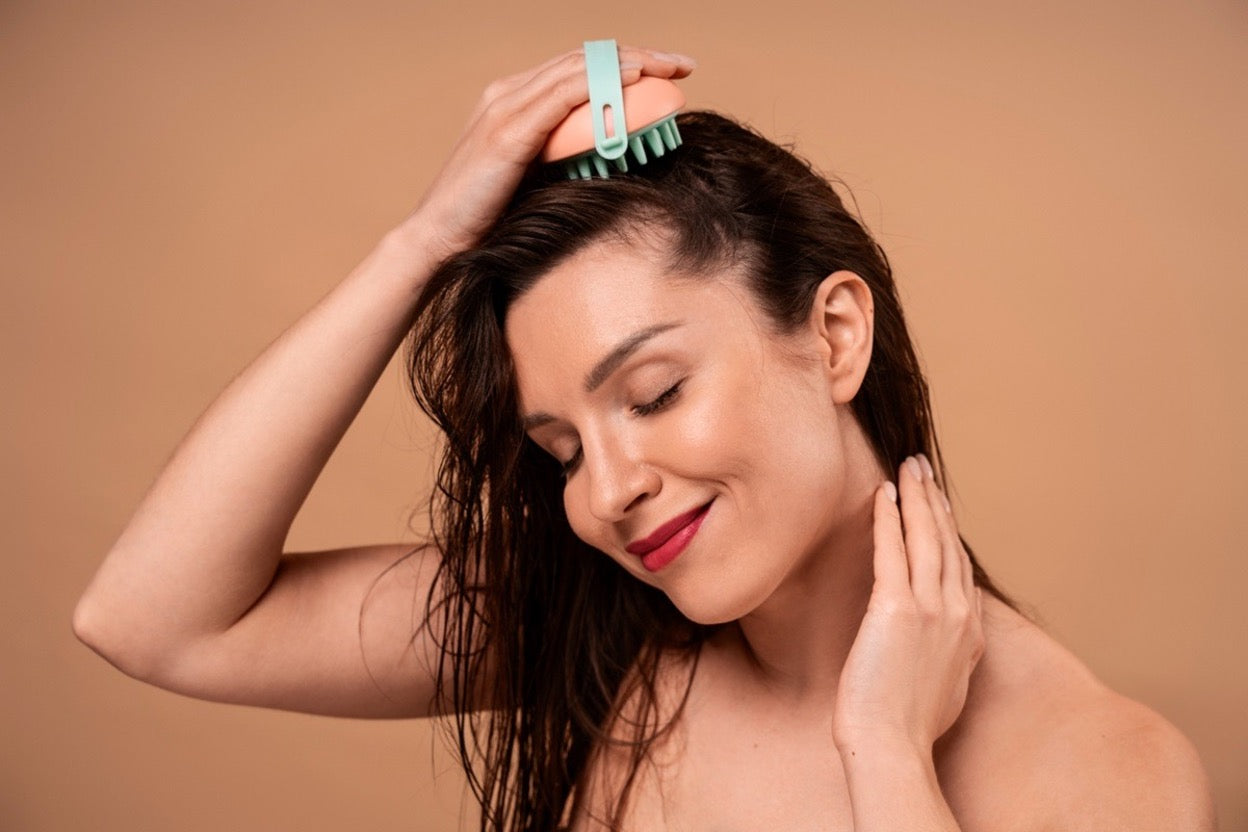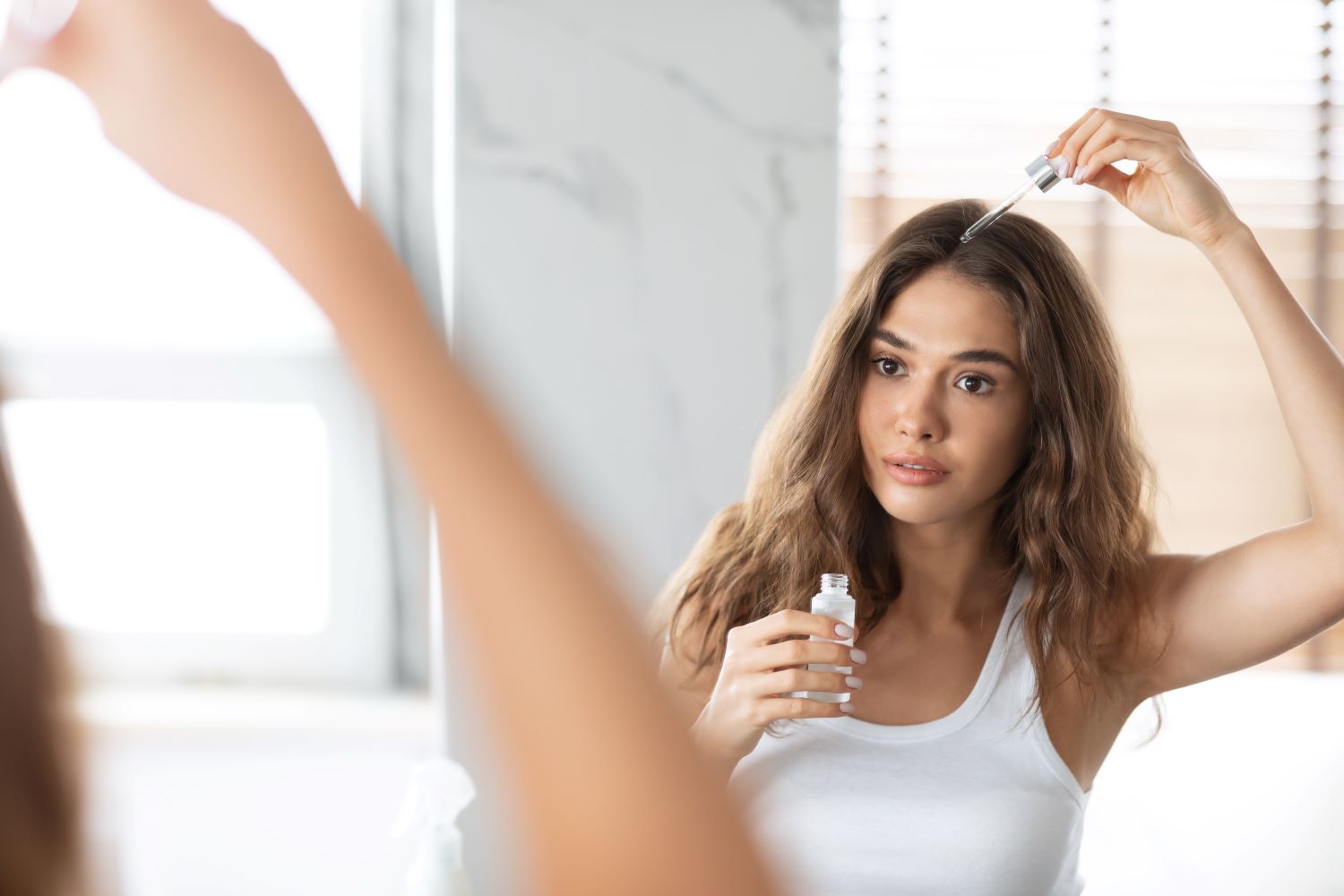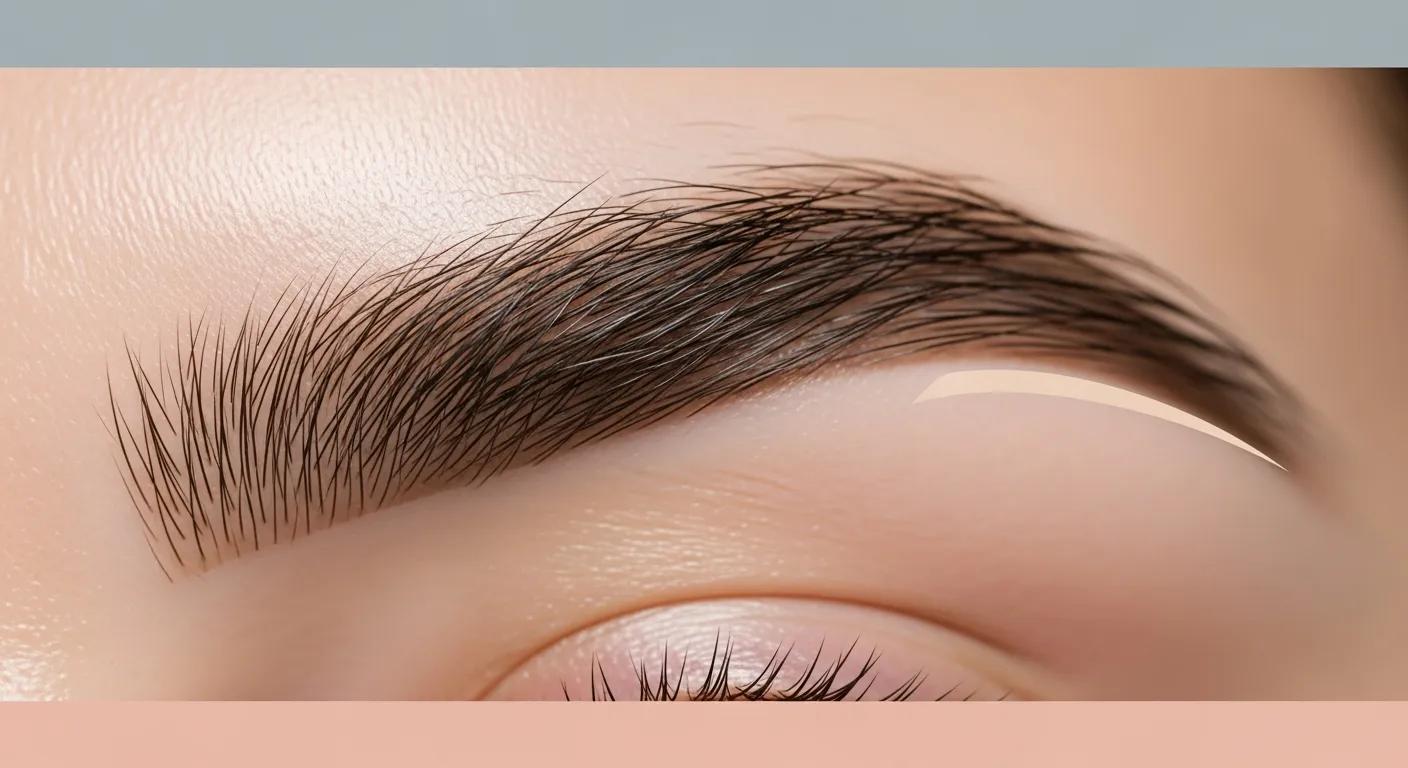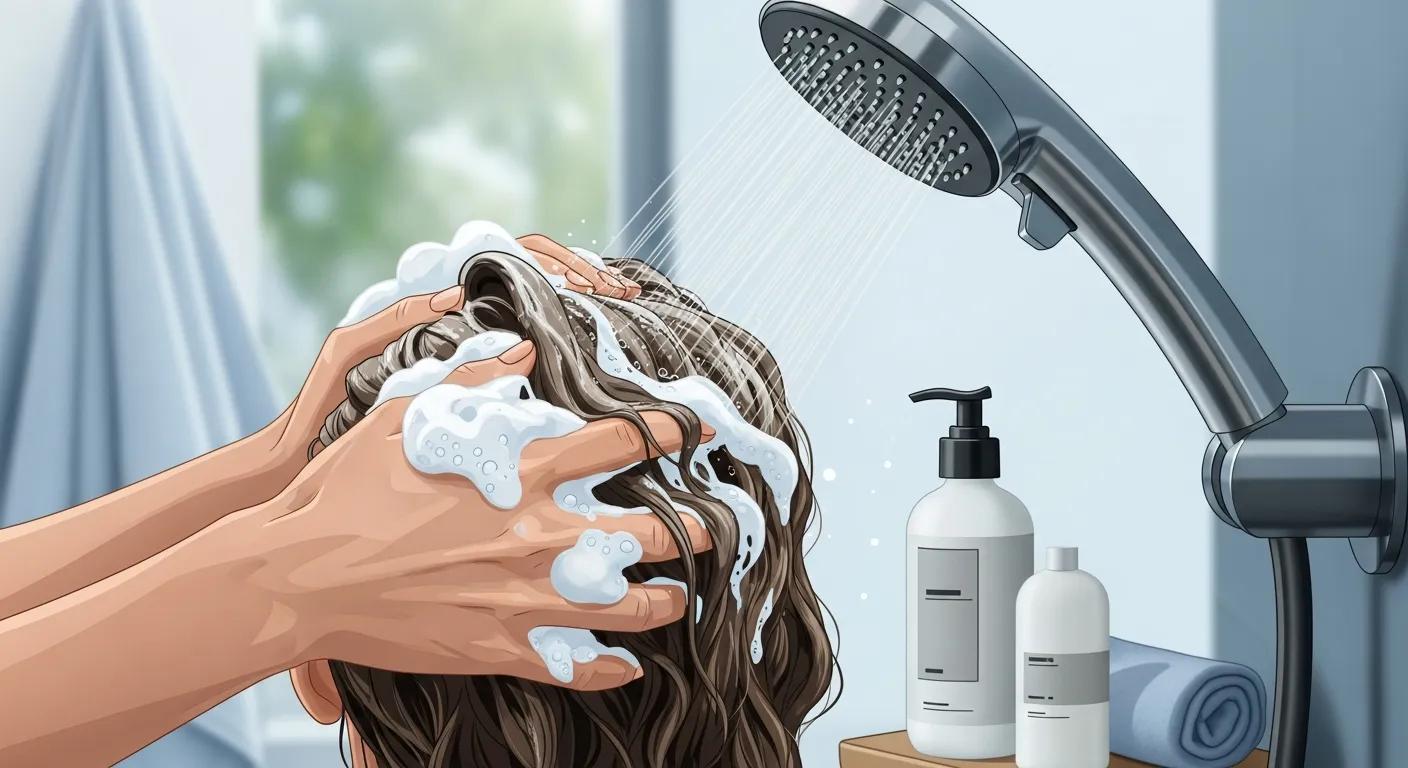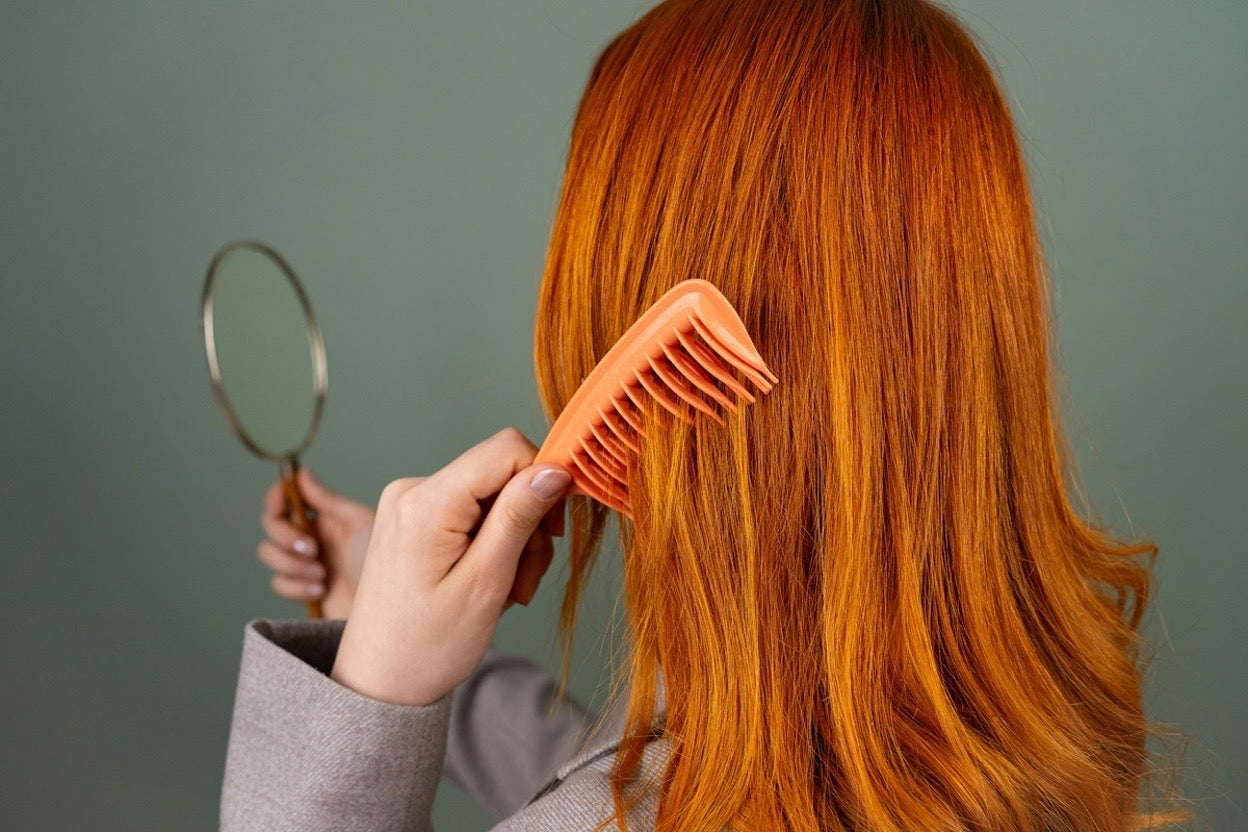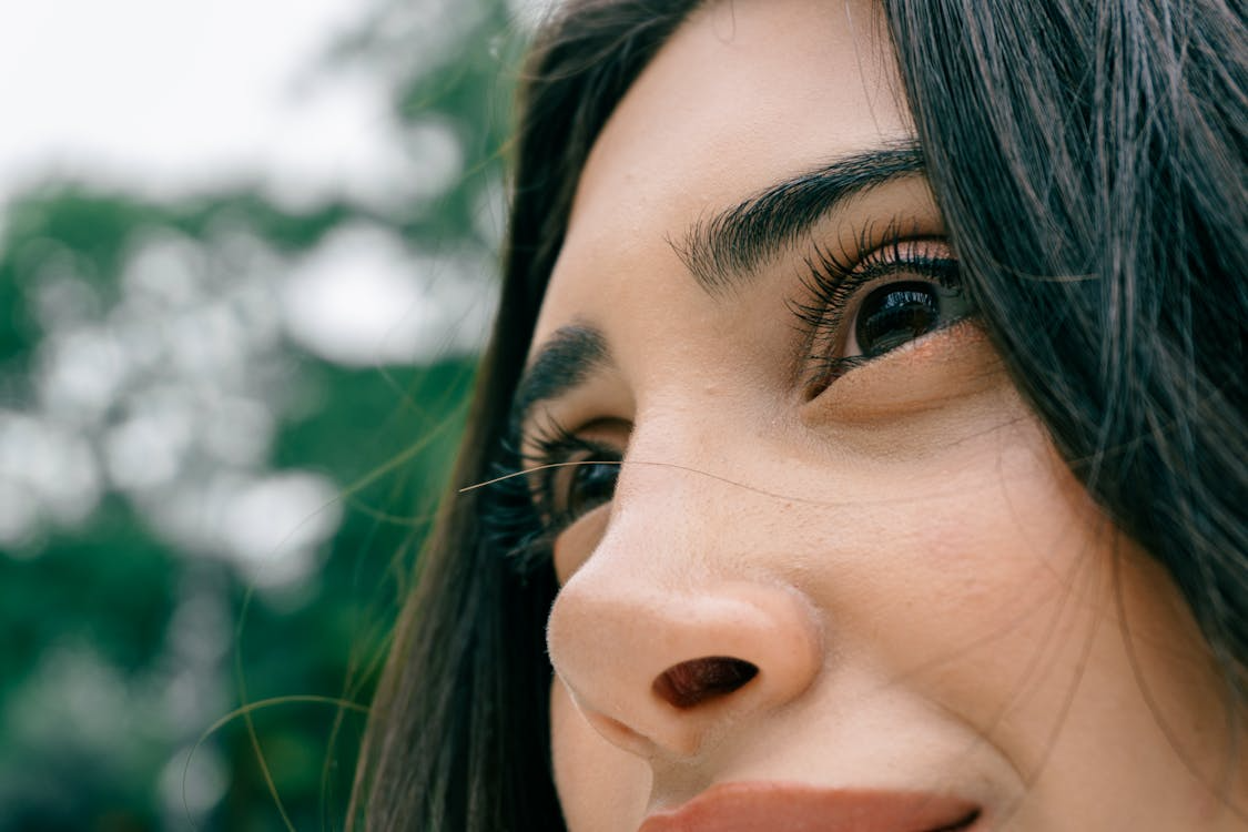What Does Hair Loss from Stress Look Like?
BY TRYBELLO
May 17, 2025

Key Takeaways
- Stress-induced hair loss often manifests as diffuse thinning across the scalp rather than isolated bald spots.
- The most common type of stress-related hair loss is telogen effluvium, where hair prematurely enters the shedding phase.
- Stress-related hair loss can be triggered by major life events such as job loss, relationship issues, or health crises.
- Relaxation techniques, balanced nutrition, and herbal treatments can help manage and prevent stress-related hair loss.
- Trybello Hair Helper Spray and our Hair Repair and Anti-stress Gummies contain stress-counteracting ingredients like anagain, caffeine, and biotin that work synergistically to reactivate dormant follicles and accelerate regrowth.
Recognizing Stress-Induced Hair Loss
Identifying stress-induced hair loss involves observing changes in your hair's appearance and shedding patterns. Unlike genetic hair loss, which typically starts at the hairline or crown, stress-related hair loss often presents as overall thinning.
Identifying Signs on Your Scalp
To determine if stress is affecting your hair, look for signs such as increased hair shedding, noticeable thinning, and changes in texture. Note that some hair loss is normal; losing 50-100 strands a day is typical. However, if you notice more hair on your pillow, in the shower, or on your brush, stress might be the cause.
Common Types of Hair Loss Due to Stress
Telogen effluvium is the most prevalent type of hair loss linked to stress. This condition occurs when stress pushes a significant number of hair follicles into the resting (telogen) phase, resulting in increased shedding. The good news is that telogen effluvium is usually temporary and reversible with proper care and stress management.
Differences From Genetic Hair Loss
Unlike genetic hair loss, which often follows a predictable pattern, stress-induced hair loss does not create distinct bald spots. Instead, it leads to diffuse thinning across the entire scalp. This characteristic helps differentiate it from conditions like androgenetic alopecia, where hair loss is concentrated in specific areas.
“Doctor-Approved Natural Spray Rapidly Boosts Growth & Thickness.
Why 100,000+ Women Are Switching to The TryBello All-Natural Solution!"
Join over 100,000 happy customers who’ve transformed their hair with our natural, doctor-formulated spray—rated 4.8/5 by more than 40,000 real users.
Proven Natural Ingredients
- • Caffeine Extract – Naturally blocks DHT and boosts blood flow to hair follicles
- • Biotin – Absorbs directly through the scalp for maximum results—no pills needed
- • Castor Oil – Soothes inflammation and locks in deep, lasting moisture
- • Rice Water Extract – Packed with proteins and minerals to strengthen hair and reduce shedding
Get Visible Results in 12 Weeks
- • Up to 45% increase in hair thickness
- • Reduces shedding and unclogs hair-draining nightmares
- • Supports regrowth in thinning areas
- • Leaves hair soft, shiny, and full of life
Ironclad 120-Day Growth Guarantee
No results after 4 months? Get 100% of your money back—no questions asked.


★★★★★
I started using this twice a day because I noticed my hairline receding. Didn’t pay attention to track results, now my stylist told me my hair has grown a lot since my last root touch up. I'm impressed! - Bailey

Physical Characteristics of Stress Hair Loss
Thinning Versus Bald Patches
One of the main differences between stress-induced hair loss and other types is the pattern of hair loss. With stress, you'll likely notice a general thinning rather than distinct bald patches. This diffuse thinning can make your hair appear less voluminous and more fragile.
Shedding Patterns

Shedding due to stress often occurs in clumps rather than individual strands.
You might find more hair in your shower drain or on your pillow. This increased shedding can be alarming, but understanding that it's a common stress response can help you manage it better.
Besides that, stress-induced shedding typically follows a stressful event or period. If you can correlate increased hair loss with a specific stressor, stress is likely the root cause.
Texture and Density Changes
Stress can also affect the texture and density of your hair. You might find your hair feeling finer or less dense than usual. This change is often temporary, and once stress levels are managed, your hair can regain its original texture and density.
Triggers of Stress-Related Hair Loss
Major Life Events
Events such as the loss of a loved one, divorce, or a major health diagnosis can lead to significant stress, which in turn can affect your hair. These events impact your emotional well-being and also your physical health, including your hair.
Daily Stressors
Daily stressors, such as work pressure, financial concerns, and family responsibilities, can accumulate over time and contribute to hair loss. While these stressors may seem minor individually, their cumulative effect can be significant. Identify these stressors and find ways to manage them effectively.
Psychological Impact on Hair
Stress can lead to anxiety and depression, which may exacerbate hair loss. When you focus on your mental health, you can improve your overall well-being and, in turn, your hair health. Therapy, meditation, and journaling can help you process emotions and reduce stress, promoting healthier hair growth.
Natural Remedies for Stress-Induced Hair Loss
Relaxation Techniques
Relaxation techniques, such as deep breathing, yoga, and meditation, can help calm the mind and reduce stress levels. These practices encourage a state of relaxation that benefits both your mental and physical health.

When you dedicate just a few minutes each day to relaxation techniques, you can reduce your stress levels and improve hair health.
Diet and Nutrition
Nutrients such as vitamins A, C, D, E, zinc, iron, and omega-3 fatty acids are essential for maintaining healthy hair. Incorporating a variety of fruits, vegetables, lean proteins, and healthy fats into your diet can support hair growth and reduce stress.
Consider adding foods rich in these nutrients, like salmon, nuts, spinach, and berries, to your meals. Staying hydrated is also good, as dehydration can contribute to stress and affect hair health.
Natural Treatments
Natural treatments, such as rosemary oil, lavender oil, and peppermint oil, have been used for centuries to promote hair health. Natural hair growth products can also be applied topically to the scalp to stimulate circulation and encourage hair growth.
Incorporating herbal teas, like chamomile and green tea, into your routine can also provide stress-relief benefits and support hair health. Always perform a patch test before using new oils or herbs to ensure you don't have an allergic reaction.
Path to Recovery and Hair Regrowth
Timeline for Regrowth
Hair regrowth following stress-induced hair loss typically begins within a few months after the stressor is addressed. In cases of telogen effluvium, hair often starts to regrow within 3 to 6 months. However, it may take up to a year or more for your hair to return to its full density.
During the regrowth phase, be patient and consistent with your hair care routine. Avoid harsh treatments or styling practices that could damage new hair growth. Instead, focus on nurturing your scalp and providing your hair with the nutrients it needs to thrive.
Maintaining Healthy Hair
Maintaining healthy hair requires ongoing commitment to a balanced lifestyle and hair care routine. Start by using gentle, sulfate-free shampoos and conditioners that are suitable for your hair type. These products help preserve natural oils and prevent further damage.
Incorporate regular scalp massages to stimulate blood circulation and promote hair growth.
Role of Professional Help
Seeking professional help can be a valuable step in managing stress-induced hair loss. Dermatologists and trichologists specialize in diagnosing and treating hair and scalp conditions. They can provide personalized recommendations and supplements customized to your specific needs.
If you're experiencing persistent hair loss or have concerns about your hair health, don't hesitate to reach out to a professional. They can conduct a thorough evaluation and help identify any underlying issues that may be contributing to hair loss.
Restore Stress-Damaged Hair with Trybello: Your Partner in Recovery
Experiencing stress-related hair loss can be deeply troubling, but there's hope. Most individuals see significant regrowth within 3 to 6 months when addressing the root causes with proper stress management, nutrition, and specialized hair care.
At Trybello, we've revolutionized hair recovery with our dual-action system designed specifically for stress-damaged follicles.

Our Hair Helper Spray utilizes groundbreaking science to interrupt the harmful cycle where elevated cortisol forces up to 30% of growing follicles into premature shedding.
Unlike conventional treatments, our Bello Hair Helper Spray combines biotin with castor oil and caffeine for targeted nourishment that works harmoniously with your body's natural recovery systems to stimulate hair follicles and create a scalp environment for optimal hair regrowth.

Complementing this external treatment, our Hair Repair & Anti-Stress Gummies provide comprehensive support from within.
Trybello Hair Repair & Anti-Stress Gummies contain clinically-proven Anagain™, which studies show improves hair growth and increases thickness in women in just three weeks. We've enhanced the formula with L-Theanine to reduce stress and improve scalp blood flow, plus zinc to protect follicles from damage and reduce inflammation.
The beauty of this system lies in its simplicity. Just apply our lightweight, non-greasy spray morning and evening, massage gently into affected areas, and take your daily gummies. This inside-out approach delivers remarkable results.
Best of all, our gummies support total wellness, both promoting thicker, healthier hair and revitalizing skin and reducing wrinkles, all without added sugar. They’re incredibly diabetes-friendly and heart-healthy.
Experience the transformation risk-free with our 120-day guarantee and join thousands of satisfied customers who've reclaimed their hair's vitality.
TRY YOUR BELLO HAIR HELPER SPRAY NOW →
Frequently Asked Questions (FAQs)
Trending Topics
See our latests posts #TRYBELLO


